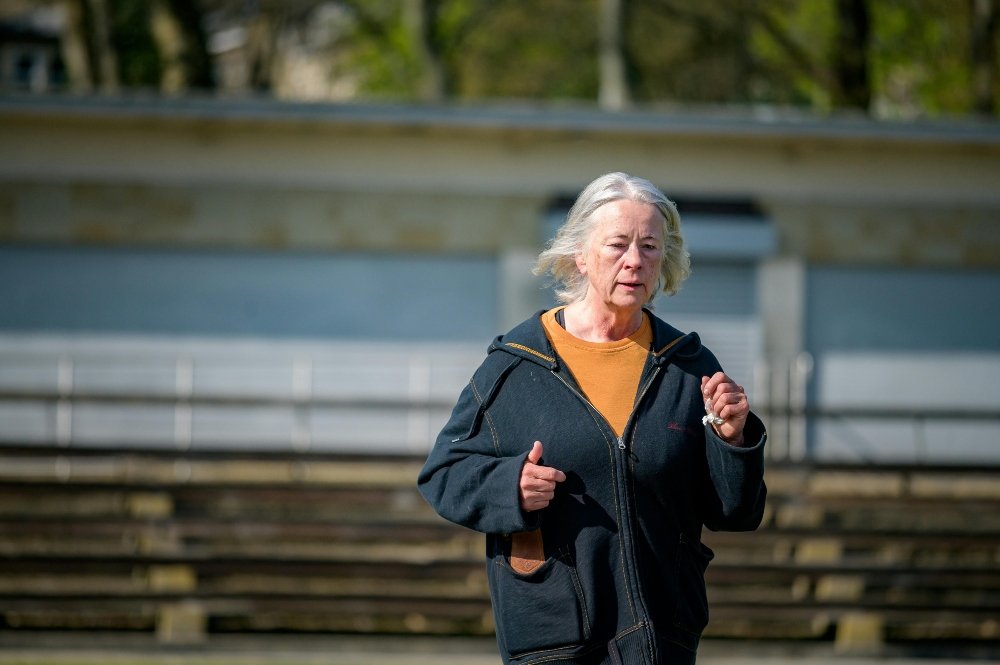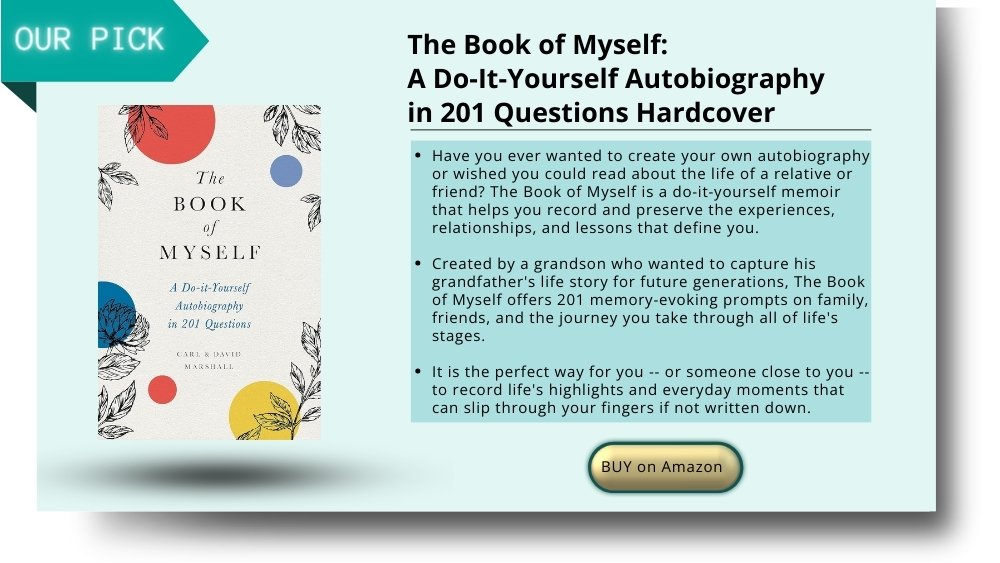Boost Self-Esteem in Retirement: 5 Essential Strategies

Last Updated on July 14, 2025 by Rose Ann
Retirement represents a significant life transition that brings both wonderful opportunities and unique challenges to your sense of self. While this new chapter offers freedom to explore passions and interests, many retirees experience unexpected dips in self-esteem as they adjust to a life without the structure, purpose, and identity that their careers provided.
Recent research shows that maintaining healthy self-esteem during retirement is crucial for both physical and mental wellbeing, with studies indicating that those who maintain a strong sense of self-worth experience better health outcomes and greater life satisfaction.
The good news? Self-esteem in retirement can be actively cultivated through five essential strategies: staying physically active, nurturing a balanced diet, maintaining mental sharpness, building meaningful social connections, and finding renewed purpose.
This article explores practical, evidence-based approaches to boost your self-esteem during this rewarding phase of life, helping you create a retirement that’s not just comfortable, but truly fulfilling. Ready to discover how to embrace your inherent worth during these golden years?
Let’s explore strategies that will help you thrive, not just survive, in retirement.
Strategies to Boost Self-Esteem in Retirement
A major change in life, retirement usually presents chances for leisure and personal development. This time, though, one may also suffer from self-esteem. Common worries are finding meaning, adjusting to a new schedule, and preserving individuality. A happy and interesting life depends on high self-esteem in retirement.
Staying Active and Healthy
Retiring requires maintaining both physical and mental health if one is to raise self-esteem. Your well-being will be much improved by regular physical activity, a balanced diet, and mindfulness practice. This part will offer useful advice and ideas on how to be active and healthy, therefore guaranteeing a vivid and satisfying retirement. We will also talk about the need of early discovery via frequent medical visits.
Importance of Physical Activity
To maintain decent health and boost self-esteem in retirement depends on regular physical activity. Exercise lowers stress and anxiety and releases endorphins, which are naturally occurring mood lifters. It also advances general energy levels, cardiovascular health, and sleep quality. Including several kinds of exercise in your schedule will have overall advantages.
Cardiovascular activities boost heart health and endurance and include walking, swimming, cycling, and dancing. Using weights or resistance bands, strength training helps preserve muscular mass—a vital component for mobility and independence. Yoga and Pilates are among the flexibility and balancing workouts that improve range and lower fall risk.

Tips for Staying Active:
- Set realistic goals: Start with small, achievable goals and gradually increase the intensity and duration of your workouts.
- Find enjoyable activities: Choose activities you enjoy to make exercising more fun and sustainable.
- Join a group or class: Social interactions during group activities can enhance motivation and provide a sense of community.
Have you considered trying a new form of exercise this month? Perhaps something like tai chi or water aerobics that’s gentle on the joints but effective for building strength?
Prefer to listen than read?
Prioritizing Balanced Nutrition
Retiring requires a healthy diet if one is to keep physical health and boost self-esteem in retirement. Consuming a range of nutrient-dense foods gives the body the vitamins and minerals it needs to run as it should. Rich in vitamins, minerals, and antioxidants supporting general health and lowering of the risk of chronic diseases, fruits and vegetables are the elements of a balanced diet. A healthy body from following this diet lets you boost self-esteem in retirement.
Essential fibre included in whole grains such as oats, brown rice, and whole wheat helps digestion and keeps constant energy levels. Fish, chicken, beans, and lentils are among other lean proteins that enhance muscular health and help rebuild and heal tissues. From nuts, seeds, avocados, and olive oil, healthy fats offer vital fatty acids supporting brain function and lowering of inflammation.
Healthy Eating Tips:
- Practice portion control: Be mindful of portion sizes to avoid overeating.
- Stay hydrated: Drink plenty of water throughout the day to stay hydrated and support bodily functions.
- Limit processed foods: Minimize the intake of processed foods high in sugar, salt, and unhealthy fats.
Mental Health Practices: Mindfulness and Meditation
In retirement, mental health just as much as physical health is vital. Mindfulness and meditation among other practices help lower stress, increase focus, and improve general well-being, thereby boost self-esteem in retirement.
Among the many advantages mindfulness and meditation provide are increased emotional control, reduced stress, and enhanced attention and concentration. These techniques improve mental clarity, help to properly control emotions, and encourage relaxation and quiet. A strong mental health is a good way to boost self-esteem in retirement.
Getting Started with Mindfulness and Meditation:
- Find a quiet space: Choose a quiet, comfortable place to practice.
- Start small: Begin with short sessions of 5-10 minutes and gradually increase the duration.
- Use guided sessions: Apps and online videos can provide guided meditation sessions, making it easier to get started.
Early Detection Through Medical Checkups
Regular medical visits depend on early detection of possible health problems, which also greatly help to boost self-esteem in retirement. Early identification enables quick intervention, therefore enhancing results and preserving general health. Regular visits assist in controlling current medical conditions, finding health problems before they become major, and giving peace of mind by knowing one’s health state.
Blood pressure and cholesterol checks to prevent cardiovascular diseases, diabetes screening to prevent complications, cancer screenings for early detection and treatment of cancers including breast, colon, and prostate, and vision and hearing tests to ensure any changes are promptly address key health screenings for retirees.

Tips for Staying on Top of Medical Checkups:
- Schedule regular appointments: Mark your calendar for regular checkups and screenings.
- Keep a health journal: Track your health metrics, medications, and any symptoms.
- Communicate with your doctor: Be open and honest with your healthcare provider about any concerns or changes in your health.
Are you keeping up with your regular check-ups? How has your most recent medical visit helped you take better control of your health?
Finding Purpose and Meaning
Maintaining a good quality of life and boost self-esteem in retirement depend on one finding purpose and meaning for it. Many retirees battle a loss of identity and purpose once they leave the employment. Participating in important events can help one regain value and fulfillment, therefore enhancing the retirement experience.
Volunteering and Community Involvement
One great approach to discover direction and boost self-esteem in retirement is volunteering. Retirees who help others can stay active, create fresh connections, and change lives. This feeling of purpose often significantly improves one’s well-being.
Ways to Get Involved:
- Local Charities: Offer your time and skills to local charities and non-profit organizations.
- Community Centers: Participate in or lead activities at community centers.
- Mentorship Programs: Share your knowledge and experience by mentoring younger individuals or professionals.
Pursuing Hobbies and Passions
Rediscovering past interests or pursuing fresh passions is best done in retirement. Participating in things you enjoy can bring great pleasure and satisfaction, which is absolutely vital to boost self-esteem in retirement. Pursues of interests can help you creatively and functionally occupy your days in painting, gardening, music performance, or cooking. You can further fill accomplished by learning new skills like making online video content. There are sites like Skillshare where the best educators teach you new pursuits during your golden years.
Ideas for Hobbies and Passions:
- Creative Arts: Painting, writing, crafting, or playing music.
- Outdoor Activities: Gardening, hiking, bird-watching, or fishing.
- Learning New Skills: Taking up photography, cooking classes, or learning a new language.
Lifelong Learning and Educational Opportunities
One of the best ways to establish direction and boost self-esteem in retirement is to keep developing intellectually. Lifelong education sharpens the mind, stimulates inquiry, and creates fresh paths for human growth. Many colleges and companies provide programs especially meant for retirees.
Opportunities for Lifelong Learning:
- Online Courses: Platforms like Coursera, Udemy, and Khan Academy offer a wide range of courses.
- Local Colleges and Universities: Many institutions provide senior discounts or free courses for retirees.
- Community Workshops: Attend workshops or seminars on topics that interest you.
Building and Maintaining Social Connections
Strong social connections are vital for emotional well-being and boost self-esteem in retirement. Maintaining relationships with family and friends, and making new connections can provide support, companionship, and a sense of belonging. Social activities can also introduce you to new interests and opportunities for engagement.
Ways to Build Social Connections:
- Strengthen Existing Relationships: Regularly connect with family and friends through visits, calls, or online.
- Make New Friends: Join clubs, groups, or social organizations where you can meet like-minded individuals.
- Participate in Group Activities: Engage in community events, group fitness classes, or hobby groups.
How connected do you feel to your community? Have you discovered new social activities that you particularly enjoy?
Financial Security and Planning
Properly managing your finances in retirement is crucial. Having a clear understanding of your income, expenses, and savings helps maintain financial stability and reduces stress. Creating and adhering to a budget ensures that you live within your means while still enjoying your retirement.
Managing Retirement Finances
Properly managing your finances in retirement is crucial. Having a clear understanding of your income, expenses, and savings helps maintain financial stability and reduces stress. Creating and adhering to a budget ensures that you live within your means while still enjoying your retirement. A secure finances can boost self-esteem in retirement.
Key Financial Management Steps:
- Assess Your Income: Determine all sources of income, including pensions, social security, investments, and part-time work.
- Track Expenses: Keep a detailed record of your monthly expenses to understand where your money is going.
- Create a Budget: Develop a realistic budget that balances your income and expenses, allowing for savings and discretionary spending.
Seeking Professional Financial Advice
Consulting with a financial advisor can provide valuable insights and strategies for managing your retirement funds. Professional advice can help optimize your investment portfolio, plan for future healthcare costs, and ensure you have a sustainable income stream throughout retirement. This proactive approach to financial planning can boost self-esteem in retirement by instilling confidence in your financial decisions.
Benefits of Professional Financial Advice:
- Personalized Planning: Receive tailored advice that aligns with your financial goals and risk tolerance.
- Investment Management: Ensure your investments are diversified and aligned with your retirement timeline.
- Tax Planning: Minimize tax liabilities and maximize retirement savings through strategic planning.

Embracing Change and Adaptability
Retirement is a big life shift that involves a lot of adjustments. Retaining a positive mindset and boost self-esteem in retirement requires embracing these changes and being flexible. Retirees who possess these qualities will be better able to handle new situations, overcome obstacles, and enjoy this fulfilling stage of life.
Developing a Positive Mindset
In retirement, maintaining a positive outlook is essential for accepting change and boost self-esteem in retirement. Refocusing your attention from the losses to the opportunities retirement offers can change your perspective and improve your general well-being. Gratitude exercises and upholding a happy outlook can have a big impact.
Methods for Creating a Positive Attitude:
- Practice Gratitude: Take time each day to consider and be grateful for all that is good in your life.
- Pay Attention to Opportunities: Consider your retirement as an opportunity to discover new hobbies and pastimes.
- Remain Positive: Steer clear of negative thought habits and surround yourself with uplifting people.
Setting Realistic Goals and Celebrating Achievements
Establishing achievable goals in retirement gives you direction and purpose. Whether it’s learning a new skill, improving your fitness, or contributing to your community, setting and reaching goals can significantly boost self-esteem in retirement.

Advice on Goal-Setting:
- Be Particular: Establish attainable, well-defined goals for yourself.
- Establish Achievable Goals: Make sure your objectives are doable and within your reach.
- Honor accomplishments: No matter how tiny, recognize and celebrate your successes.
Are you ready to test your inner flamingo? Setting a balance goal like standing on one foot for 30 seconds can improve both your physical stability and mental focus. What small goal could you set for yourself this week?
Staying Open to New Experiences
For personal development and to boost self-esteem in retirement, staying open to new experiences is essential. Retirement offers the freedom to explore new interests, meet new people, and create unforgettable memories.
Concepts for Novel Experiences:
- Travel: Explore new places, whether it’s international destinations or local attractions.
- Try New Activities: Step outside your comfort zone and try something completely different.
- Join Clubs or Groups: Connect with others who share similar interests or are exploring new activities.
Understanding Self-Esteem in Retirement
Our perspective of ourselves and general well-being depends much on understanding self-esteem in retirement. Many people find major changes in their sense of self-worth during the retirement transition. Self-esteem is really about our value of ourselves, our skills, and our worth, which can be strongly affected by the significant life transition of retirement.
Self-esteem is really about our value of ourselves, our skills, and our worth, which can be strongly affected by the significant life transition of retirement. Knowing these changes and tackling them positively is vital for a satisfying retirement.

Retirees often struggle with losing the structure and identity that their careers provided. For decades, many defined themselves by their professional roles, and the absence of that identity can lead to feelings of uncertainty or diminished self-worth. Recognizing this as a normal part of the transition can help address these feelings constructively.
Recent research shows that while some people initially experience a dip in self-esteem upon retirement, many actually see improvements in their sense of self-worth over time, especially when they retire from dissatisfying jobs and find new sources of meaning and purpose.
Self-esteem in retirement is influenced by multiple factors:
- Physical health and vitality
- Financial security
- Quality of relationships
- Sense of purpose
- Ability to adapt to changes
By understanding these influences, you can take proactive steps to enhance your self-esteem during this life stage.
The Takeaway
Retirement brings a unique opportunity to redefine yourself and boost your self-esteem in ways that weren’t possible during your working years. By staying physically active, nourishing your body with balanced nutrition, engaging your mind, fostering social connections, and finding renewed purpose, you can build a retirement life that’s rich with meaning and self-worth.
Remember that maintaining high self-esteem in retirement isn’t an automatic process—it requires intention, adaptation, and sometimes stepping outside your comfort zone. But the rewards of investing in yourself during this phase are immeasurable.
What strategies have you found most helpful in maintaining your self-esteem since retiring? Or if you’re approaching retirement, which area do you think will be most important for preserving your sense of self-worth? We’d love to hear your thoughts and experiences in the comments below!
Frequently Asked Questions to Boost Self-Esteem in Retirement
- Is it normal to experience a drop in self-esteem when first retiring?
- Yes, it’s quite common. Research from 2023-2024 shows that many retirees experience an initial dip in self-esteem as they adjust to the loss of their professional identity. However, studies also show that self-esteem often rebounds and even improves over time as retirees develop new sources of meaning and purpose.
- How does physical activity specifically help with self-esteem in retirement?
- Physical activity releases endorphins (natural mood elevators), improves body image, provides a sense of accomplishment, and offers opportunities for social interaction. Recent studies show that just 150 minutes of moderate exercise weekly can significantly improve mood and self-perception in older adults.
- I’ve been retired for two years and still struggle with feeling purposeless. Is this common?
- Finding new purpose after decades of work doesn’t happen overnight. Many retirees report taking 2-3 years to fully adjust to retirement and develop a new sense of purpose. Volunteering, mentoring, learning new skills, or pursuing creative endeavors can all help create meaning. Consider exploring multiple activities to find what resonates most with you.
- How important are social connections for maintaining self-esteem in retirement?
- Extremely important. A 2024 study found that socially connected retirees reported 34% higher levels of self-esteem than those experiencing social isolation. Regular meaningful interactions with others provide validation, support, and a sense of belonging that significantly contributes to positive self-regard.
- Can financial concerns affect self-esteem in retirement?
- Absolutely. Financial security contributes to peace of mind and independence, both of which support healthy self-esteem. If you’re experiencing financial stress, consulting with a financial advisor who specializes in retirement planning can help you maximize your resources and reduce anxiety.
- What role does continued learning play in maintaining self-esteem after retirement?
- Lifelong learning keeps your mind sharp and provides a sense of growth and accomplishment. Whether it’s learning a new language, taking up digital photography, or studying history, acquiring new skills demonstrates to yourself that you’re still capable and evolving, which positively impacts self-perception.
- How can I help my recently retired spouse who seems to be struggling with their self-worth?
- Listen without judgment, encourage them to explore new interests, help them connect with other retirees, and validate their feelings. Suggest activities you can do together, but also respect their need to develop independent interests. If their struggles persist or deepen, consider suggesting they speak with a therapist who specializes in life transitions.
REFERENCES
- American College of Sports Medicine. (2024). ACSM Fitness Trends.
- Care Indeed. (2024). What is the Best Balanced Diet Plan for Seniors?
- CDC. (2024). Older Adult Activity: An Overview.
- Copeland, C. & Greenwald, L. (2024). Results From the 2024 Retirement Confidence Survey. Employee Benefit Research Institute.
- Long Island Counseling Services. (2024). What Stands in the Way of Social Connections After Retirement.
- MyPlate.gov. (2024). Nutrition Information for Older Adults.
- RetireGuide. (2023). Building Social Connection In Retirement: Benefits & Impact.
- World Health Organization. (2024). Ageing and health.
- Yemiscigil, A., Powdthavee, N., & Whillans, A. V. (2021). The Effects of Retirement on Sense of Purpose in Life: Crisis or Opportunity? Psychological Science.





